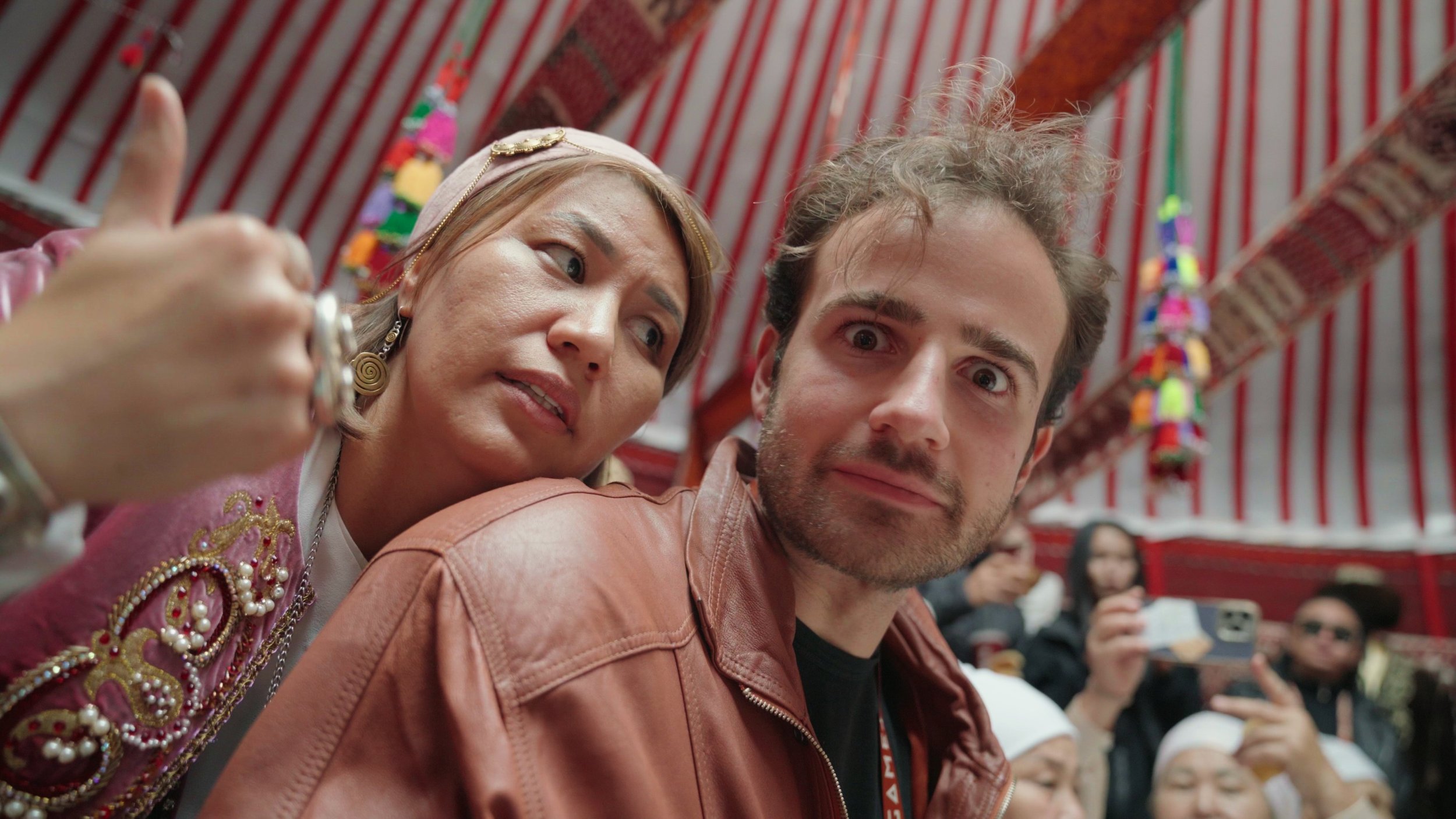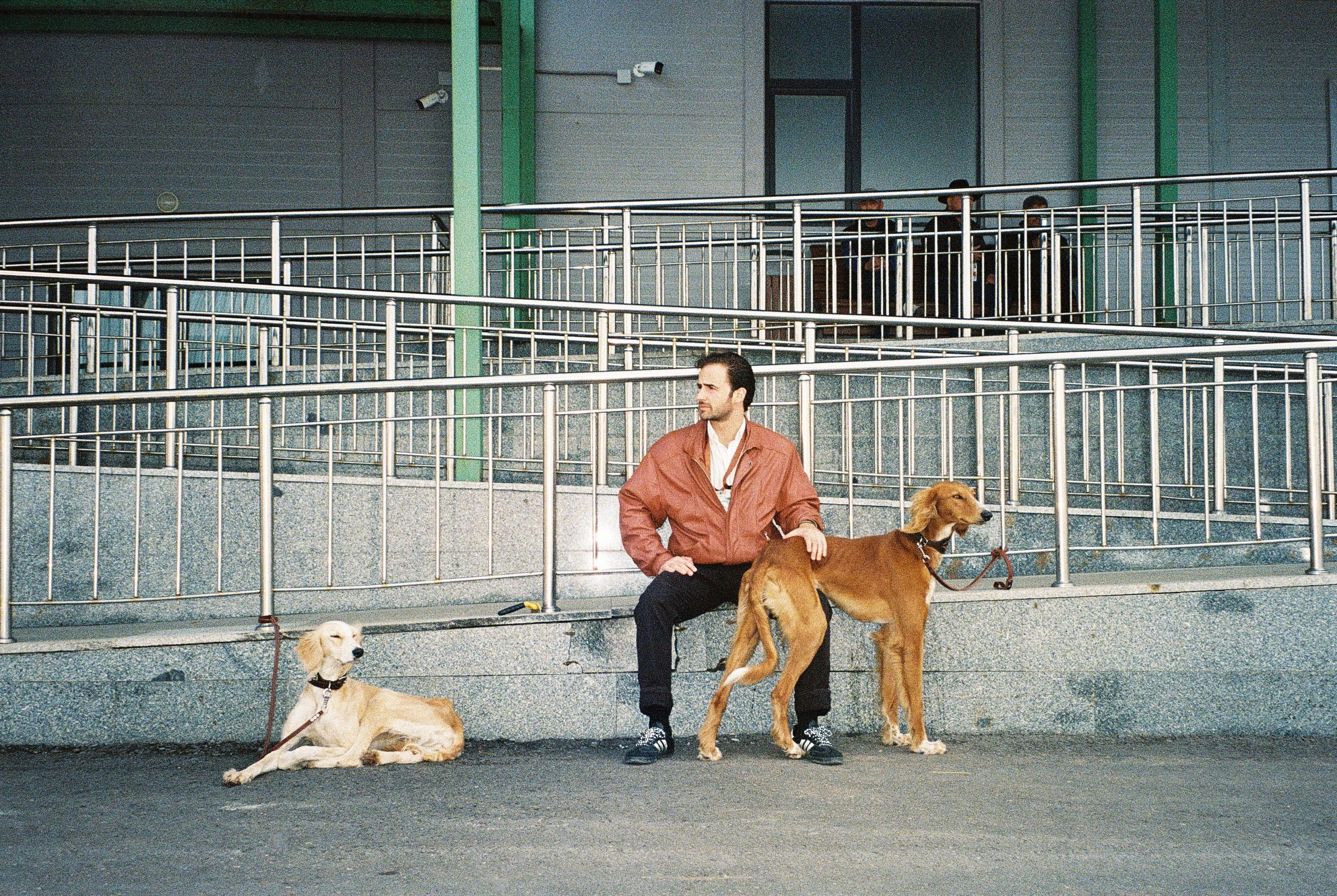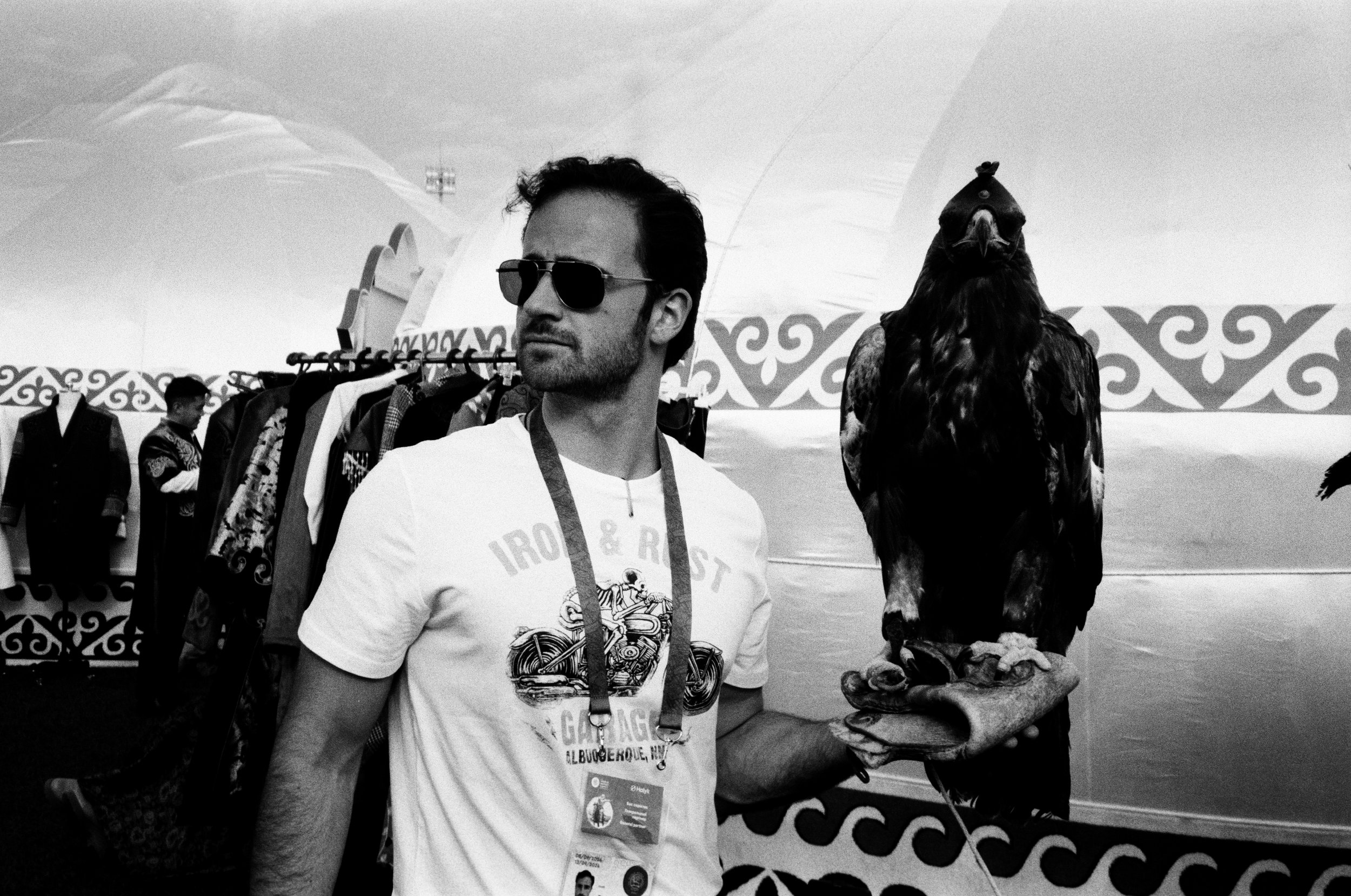What were these things, anyway? Gold? Jewels? The meaning of life? We hadn’t the faintest clue. All we had was a used napkin with a few cryptic notes and a number scribbled on the back.
Turns out, the dazzling eagle huntress wasn’t a complete dead end.
But no, it wasn’t her number, it was for a half-abandoned noodle shop downtown.
When I called, an old woman’s voice cracked through:
“Da?”
“Uh, yes. Hello. A friend gave me this number. She said—”
The line went dead.
The woman in the noodle shop was indeed old. Borderline ancient. Her hair was a fiery red, short and neatly trimmed. She sat behind a wooden counter with arms crossed and brows pinched behind thick red reading glasses. A bow and arrow hung on the wall behind her.
Her eyes flicked between us and the lone table of customers in the corner, their slurps the only sound in the otherwise silent room.
“Hello again. I’m looking for…” Instinct kicked in, and I lowered my voice.
“Treasure. Seven of them, actually. I heard you might be able to help?”
Her scrutinizing, wise eyes pierced mine for what felt like minutes, then darted to my filmer. Suddenly, they softened. I turned and saw that R.B. Charlie had switched on his million-ruble smile. We were in.
“Rasul.” She called over her shoulder. “RASULLL!”
There was a rumble in the kitchen, followed by what could only be described as a growl. Slowly, like a bear dragging itself out of hibernation, a man the width of a chest freezer emerged from the kitchen.
He must’ve weighed 300 pounds, most of it sitting in his bowling ball of a gut, that shot straight out and remained only halfway sheathed beneath his broth-stained shirt. His steps were heavy, but I got the feeling he did that on purpose, as if he wanted me to think he was a lot slower than he really was.
“Rasul. Pleasure to meet you. This is Charlie. I’m Fonso.”
On jobs like this, it’s crucial to use an alias. I don’t know why I use Fonso. All I know is in the late evenings and early mornings (when most of the work gets done), it morphs into Fonso Fitzgerald, the Duke of Montana.
He looked at me, then at R.B. Charlie, like a wolf deciding which lamb to gnaw on first.
I cleared my throat. “So, Rasul, we heard you may know something about seven treasures.”
If he was hearing me, he didn’t show any indication of it. He was studying Charlie with inquisitive, hungry eyes. Another quick glance at my shooter revealed his million-ruble smile had vanished. He looked anxious, borderline sick. I turned to get a better look. Was his skin always that green?
A fist suddenly slammed down on the hostess’s table.
“Those! Ha!” Rasul threw his head back in a roaring laugh, which only unsheathed more of his steel-watermelon of a stomach.
“Da! Da! I know them…”
Good. He knew about the treasure. That’s a relief. But what the dickens was going on with my partner? I took another hard look. His skin was changing from yellow to white, then back to green, all in real time. I couldn’t tell if he was terrified, about to faint, or both.
Rasul took a step closer. His black hair was short and coarse, and his high Central Asian cheekbones struggled to distinguish themselves from the rest of his face.
“Da, da…” his eyes drifted towards the street and betrayed a hint of nostalgia before they swung back to us. “I will tell you about one of the treasures. But only if you buy some noodles.”
That’s how we ended up sharing a table with two Chinese journalists in the corner. Rasul lumbered back to the kitchen, and R.B. Charlie collapsed into a plastic chair, clutching his stomach and muttering something about bad milk.
Earlier in the day, I’d seen him buying a plastic jug of kumis (fermented mare’s milk) from a kid in a truck. The coolers didn’t look up to standard, but I assumed he was just buying it for the same reason people buy lemonade from neighborhood stands. You never actually drink the stuff. You just hand over some money to support the kid and move on!
I waved to the hostess, signaling for drinks, and she pointed toward the fridge with her nose. I came back to the table with two beers and a bottle of vodka.
One of the Chinese journalists was a commie with a greasy ponytail and the kind of smug, nasally voice that could ruin a meal, and he couldn’t go five minutes without launching into a breathless monologue about the glorious CCP dream of a perfectly cashless utopia, complete with mandatory social credit scores, face-scanning vending machines, and food deliveries that know where you are before you do. I wrote that sentence in a long, annoying way to imitate how he spoke.
The other guy’s name was Bo. Bo was steady. The only thing he tried selling us on was Chinese cigarettes.
“I don’t like this city,” he said, exhaling the blue smoke into the steam of his noodles. “It feels more like a concept than a place.”
He was onto something. Like all planned cities, Astana felt more uncomfortable and sterile than an operating room. Hosting the Nomad Games here seemed like a poor attempt to convince everyone otherwise. It was as if the city knew it was hollow and was desperately grasping at makeshift yurts and paid actors draped in wolf pelts to cover up the ugly void of nothingness.
For this reason, combined with the fact that I parked next to a CCP propaganda chatterbox, my thirst for vodka grew, and along with it, my craving for cheap Chinese cigarettes. Bo matched my pace and seemed to find us Americans amusing. R.B. Charlie was coming around and gradually taking bigger swigs of everything. By the time the behemoth cook came back with dinner, our table of half-baked journalists was starting to look more like a sailor’s tavern.
Rasul stood there looking at us with two bowls of noodles in hand. Because of my position sitting down, my eyes were level with his belly button. I was equally terrified as I was curious. It looked dark and deep. No hair, but also not completely barren. I began to wonder what would happen if I jammed my smoldering cigarette into it...







